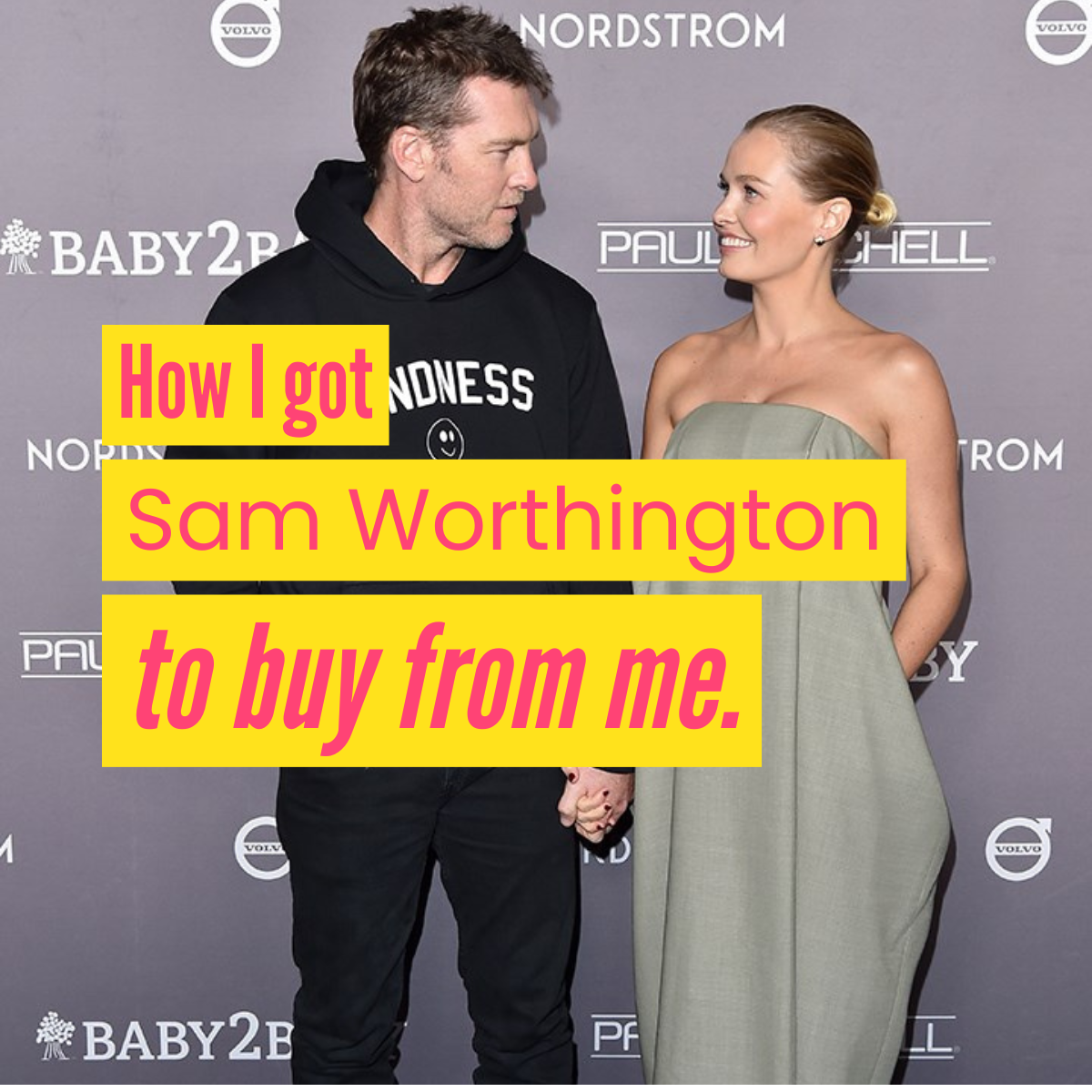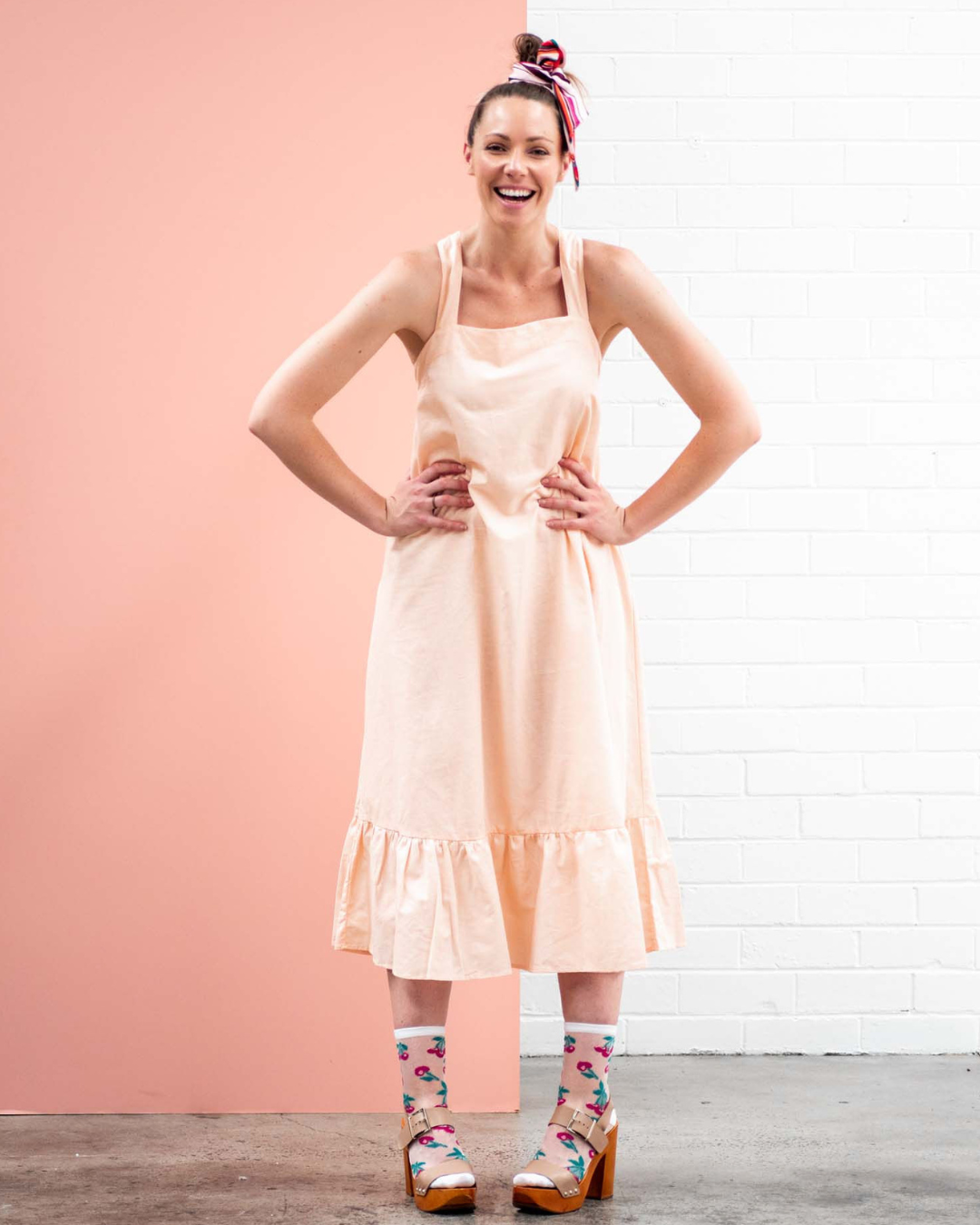Growing slow fashion businesses is my jam. I ran one of Australia’s largest online stores for ethical and sustainable fashion, beauty and lifestyle brands for nearly a decade, and I made over half a million dollars doing it.
I live, love and breathe all things business strategy. I love coming up with big ideas, finding ways to overcome growth obstacles, and pushing boundaries in fashion, but I’ve had my fair share of knock-backs and no’s. Any time I’ve ever had a ‘no’ from someone in business though, I’ve used it to fuel my fire to find the next ‘yes’, and if you’re running an ethical, sustainable, circular or slow fashion business and you’re trying to get into retail stores – you’ll need to do the same.
Being in business comes with yes’s, no’s, successes, failures, ups and downs, but you can’t let a little two letter word stop you and you can’t take it personally. Some people will like your products and some people won’t, just like some people like coriander and some people don’t. It’s not personal.
Here’s my top tips to make the wholesaling and retail journey a little easier…
Find the right stores.
If you’re spending hours, days and weeks contacting and contacting and contacting stores just to hear crickets, you might be contacting the wrong kind of stores for your fashion brand. When I had my two retail stores in Melbourne, I stocked ethical, sustainable and purpose-driven slow fashion brands, but I also had a particular style and aesthetic. I only stocked womenswear, jewellery and homewares, and I didn’t stock kidswear, menswear or trinket ‘stuff’. I had a clear aesthetic and I stuck to it, and most retailers do, so make sure you do your product alignment research. Find the right stores in the right areas that will stock your style of product, and make sure they align with your price point too. Don’t reach out to stores selling $29 dresses if you’re selling an ethical and sustainable dress for $400. Do a quick scan of the stores’ Instagram account to see if your product fits their aesthetic and make sure you’ll fit in. Contacting stores takes time, so if you’re strategic with the stores you contact and make sure they’re the right fit before you reach out - you’ll have a better success rate for replies.
Start meaningful conversations.
Getting into retail stores or wholesaling into bricks and mortar stockists is a powerful way to grow your brand. Your stockists can play such an important role in your business scalability and offer you something you can’t do if you’re running a business from home – expose you to new foot traffic. Strong retail relationships are important and extremely valuable, but too many brands start off with a cold email that pushes a hard sell. I’ve received (and not read) hundreds of them and I tend to glaze over them because they start with the hard sell. If you’re going to start a long-term relationship with a stockist, make your first impression personal, make it authentic, and don’t start with the hard sell. Start a real conversation first before you jump straight in. Contact the store on Instagram or over email and start the conversation with something about them, not you. Maybe you appreciated a recent social post they did or maybe you love their latest window display – however you start the conversation and whatever you say, be authentic and show them you’re taking notice of them with a compliment to start the conversation.
Know your numbers.
I’ve worked with hundreds of brands over the years and too many brands who think they’re ready to wholesale – aren’t. They want to grow and scale, but they’ve never run their numbers. They have big goals of getting into multiple stores and being stocked around the country, but they’ve never properly worked out an accurate cost price and they have no idea how to come up with a wholesale price. Correct pricing is key if you’re going to explore wholesaling and it’s not something you ‘just wing’. If you want to grow, you have to grow properly, and knowing your numbers will eliminate growing pains and stress. Start with your cost price and then multiply it by 2.2 to reach your wholesale price. Then, take your wholesale price, and multiply it by 2.2 to reach your RRP (recommended retail price). Using the 2.2 rule is just a guide, and you could multiply by 1.5 or 3 if you want to, but I don’t recommend any lower than 2 to give yourself a good growth buffer. For example, if your cost price is $10, your wholesale price would be 2.2 x $10 = $22. Your RRP would then be $22 x 2.2 = $48.40, but you could round up to $49.95 to make it easy.
Don’t rely solely on wholesaling for growth.
Wholesaling and getting into retail stores is just one piece of the pie when it comes to growth. Selling direct to customers will give you a higher profit margin, so I always suggest having a strong growth strategy that doesn’t rely solely on retailers and wholesale stockists for growth. If you want to learn how to create a strong selling strategy for your ethical, sustainable, circular or slow fashion brand, you can do that here, and I’ll show you how I made over half a million dollars without spending a cent on paid advertising.
And remember, the hardest part is launching. If you can get over the fear and hurdles of launching, you can find a solution to any challenge you face in business from here on out! Where there’s a will, there’s a way.
Claire x




